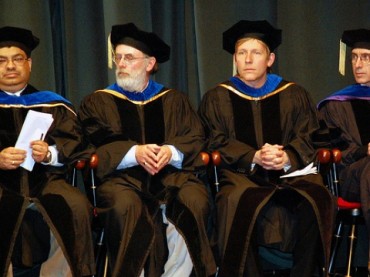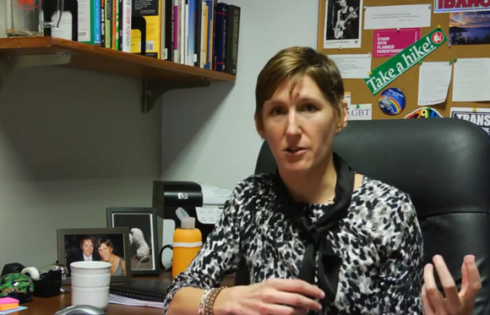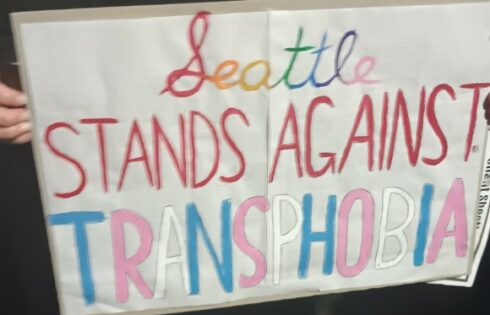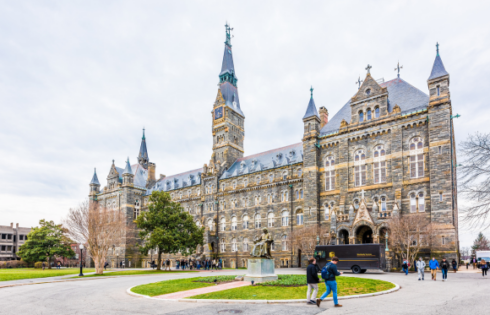
Rod Dreher writes today at The American Conservative about the ominous economic prospects of newly-minted PhD’s, quoting a life-long English professor, D.G. Myers, who after a 24-year academic career and at age 61, suddenly finds himself out of a job:
My experience is a prelude to what will be happening, sooner rather than later, to many of my colleagues. Humanities course enrollments are down to seven percent of full-time student hours, but humanities professors make up forty-five percent of the faculty. The imbalance cannot last. PhD programs go on awarding PhD’s to young men and women who will never find an academic job at a living wage. (A nearby university—a university with a solid ranking from U.S. News and World Report—pays adjuncts $1,500 per course. Just to toe the poverty line a young professor with a husband and a child would have to teach thirteen courses a year.) If only as retribution for the decades-long exploitation of part-time adjuncts and graduate assistants, nine of every ten PhD programs in English should be closed down—immediately. Meanwhile, the senior faculty fiddles away its time teaching precious specialties.
Consider some of the undergraduate courses being offered in English this semester at the University of Minnesota:
• Poems about Cities• Studies in Narrative: The End of the World in Literature & History• Studies in Film: Seductions: Film/Gender/Desire• The Original Walking Dead in Victorian England• Contemporary Literatures and Cultures: North American Imperialisms and Colonialisms• Gay, Lesbian, Bisexual, and Transgendered Literature: Family as Origin and Invention• Women Writing: Nags, Hags, and Vixens• The Image on the Page• Bodies, Selves, Texts• Consumer Culture and Globalization• The Western: Looking Awry• Dreams and Middle English Dream Visions… The Minnesota course list does not indicate a whole world of knowledge. It indicates a miscellany of short-lived faculty enthusiasms…
In my cover story for The American Interest a year ago, “The End of the University as We Know It,” I argued that going into academia might be one of the riskiest career moves a young person could make at this time, especially considering how the future of online education will worsen the imbalance of supply and demand for faculty:
Consider the possibility that, for the average student, traditional in-classroom university education has proven so ineffective that an online setting could scarcely be worse. But to recognize that would require unvarnished honesty about the present state of play. That’s highly unlikely, especially coming from present university incumbents.
The open-source educational marketplace will give everyone access to the best universities in the world. This will inevitably spell disaster for colleges and universities that are perceived as second rate. Likewise, the most popular professors will enjoy massive influence as they teach vast global courses with registrants numbering in the hundreds of thousands (even though “most popular” may well equate to most entertaining rather than to most rigorous). Meanwhile, professors who are less popular, even if they are better but more demanding instructors, will be squeezed out. Fair or not, a reduction in the number of faculty needed to teach the world’s students will result. For this reason, pursuing a Ph.D. in the liberal arts is one of the riskiest career moves one could make today. Because much of the teaching work can be scaled, automated or even duplicated by recording and replaying the same lecture over and over again on video, demand for instructors will decline.
Check out Dreher’s full post on the issue here, and my related piece at the American Interest here.
(Image: PeyriHerrera.Flickr)
Like The College Fix on Facebook / Follow us on Twitter






Please join the conversation about our stories on Facebook, Twitter, Instagram, Reddit, MeWe, Rumble, Gab, Minds and Gettr.